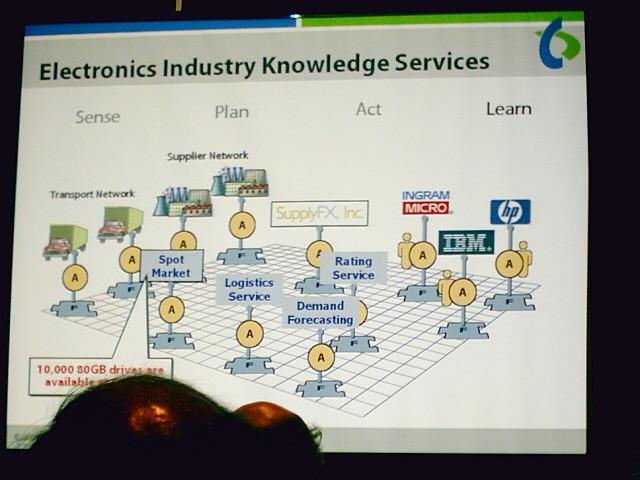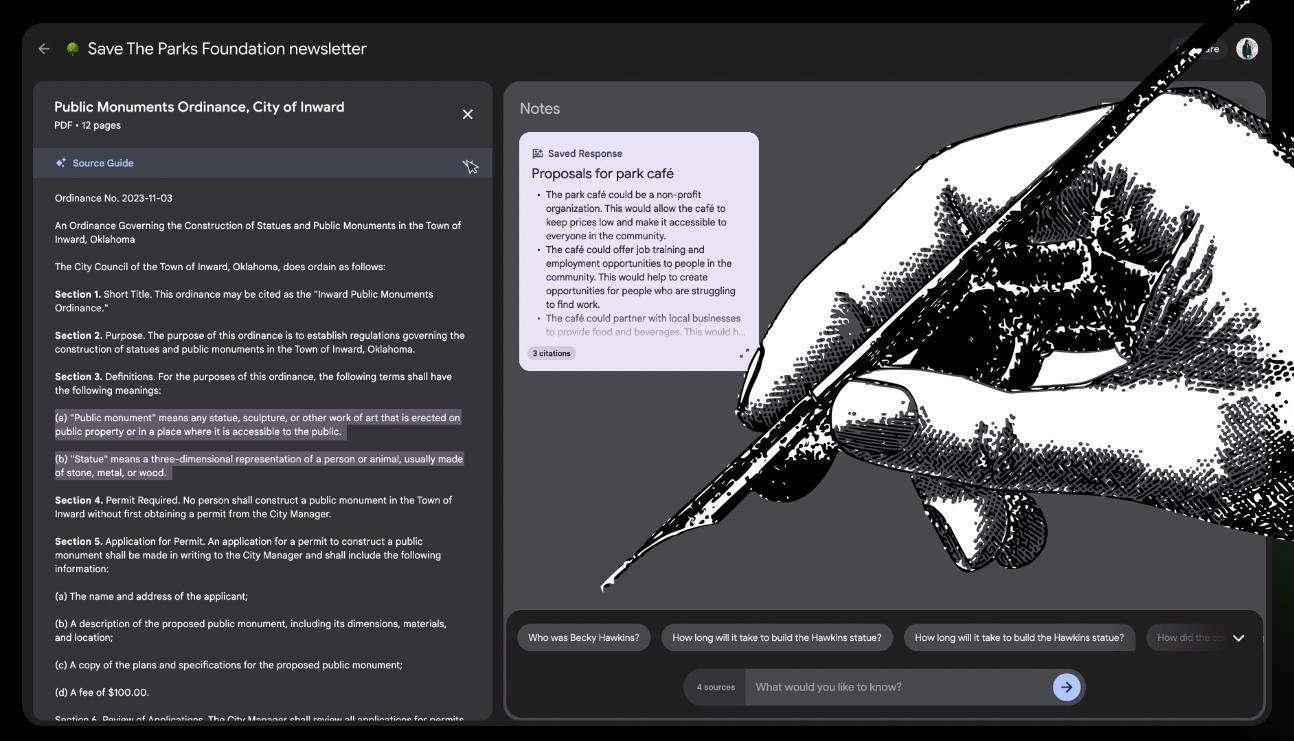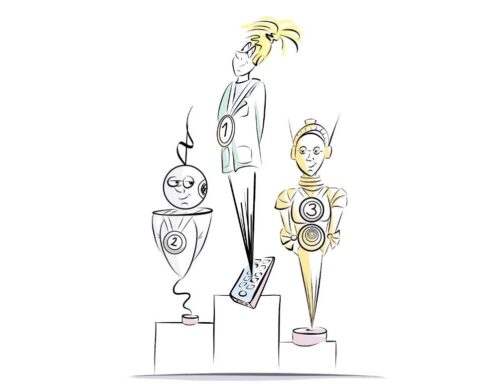Step aside, chatbots; the winds of change are rustling. A storm is brewing in the world of technology, and it’s about to change how we interact with machines, forever. As we accelerate into the future, buckled in on the ride of technological advancement, our digital companions are evolving. They’re no longer binary operators simply doing our bidding, but are becoming intelligent entities — artificially intelligent agents. Stuffed with sensors, stuffed with data, and nurtured by machine learning algorithms, these agents promise more than just casual conversations or programmed responses. They have the potential to understand, reason and learn. So, tighten your grip, hold on to your binary hats, because we’re not just riding this storm — we’re steering it. Forget your preconceived notions about chatbots, AI agents are the next big thing. Dive in with us as we unfold the future, today.
Table of Contents
- Understanding the Shift from Chatbots to AI Agents
- Decoding the Role of AI Agents in the Future of Tech
- Exploring AI Agents: Enhanced Interactions over Simple Responses
- Making Smart Decisions: How AI Agents Can Transform Your Business
- Adapting to the Future: Transitioning from Chatbots to AI Agents Now
- In Retrospect

Understanding the Shift from Chatbots to AI Agents
With technology advancing rapidly, businesses have recently seen a shift from chatbots to more intuitive AI agents. Unlike traditional chatbots, which work based on pre-programmed responses to specific phrases or keywords, AI agents use machine learning to understand and interpret human languages. They offer a more natural conversational experience, learning as they interact, and constantly improving their performance. Their development has given a new direction to the field of artificial intelligence in customer service.
Let’s understand this shift with some key differences:
| Chatbots | AI Agents |
|---|---|
| Work based on pre-set rules | Use machine learning to understand |
| Cannot understand complex queries | Can comprehend and fulfil complicated requests |
| Limited interaction ability | Ability to simulate human-like conversation |
Customer service is one area where the shift from chatbots to AI agents is rather apparent. Unlike AI agents, chatbots can come off as robotic and fail to efficiently resolve a customer’s needs if it falls outside their programmed capabilities. AI agents, on the other hand, improve customer interactions by understanding the context of a customer’s request, their sentiment, and offering personalized responses, thus leaving a lasting impression and enhancing customer satisfaction.
-
- User Experience: AI agents provide an enhanced and personalized user experience since they can understand the user’s past interactions and offer custom solutions.
-
- Cost-Effective: Although implementation cost might be high, AI agents prove to be cost-effective in the long run as they reduce the need for human intervention.
-
- 24/7 Availability: AI agents are available round the clock, thus ensuring seamless customer service irrespective of time zones.
Looking at these differences, it’s clear that the future is leaning towards AI agents. Their ability to comprehend and adapt gives them an edge over traditional chatbots. While chatbots won’t completely disappear, as they are still useful for simpler tasks, AI agents will continue to become more sophisticated and integral to organizations’ customer service strategies.

Decoding the Role of AI Agents in the Future of Tech
Artificial intelligence, once seen as a golden child of the future, has drifted into the vernacular of our contemporary technology discussion. From data analysis to customer service, AI has proven its worth.
But are we underestimating its potential? It’s time to move past the familiarity of chatbots and explore the untapped power of AI agents.
AI agents represent a step-up from chatbots. They do not just respond to prompts, but can initiate actions autonomously and learn from their experience. They’re not limited by their coding but can evolve, improve, and adapt over time.
Their self-learning attributes include interpreting complex data, understanding human emotions, and even predicting user’s needs. Imagine a digital assistant that knows your preferences, anticipates your requirements, and continuously adapts to serve you better.
Unlike chatbots, which are primarily used on customer service platforms and for information retrieval, AI agents play a much broader role in technology’s future. They’re under research for robust applications like autonomous vehicles, personalized learning, healthcare diagnosis, financial management and even cybersecurity.
Optimal application of AI agents has the potential to improve efficiency, quality, and innovation across these fields.
| AI Agent Vs Chatbots | Aspect |
|---|---|
| Chatbot mostly responds to specific question | Interaction |
| AI Agent can initiate actions autonomously | Interaction |
| Chatbot cannot deviate from its coding | Adaptability |
| AI Agent learns, evolves, and improves over time | Adaptability |
| Chatbots are primarily used in customer service | Applications |
| AI Agents span across various applications | Applications |
While integration of AI agents will revolutionize our tech landscape, it also invites challenges. Concerns include ethical dilemmas, legislation troubles and uncritical acceptance of AI advice, among others. Yet, despite these potential roadblocks, the AI revolution appears unstoppable. It’s time to forget chatbots, as AI agents shape up to be the real superstars of the future of technology.

Exploring AI Agents: Enhanced Interactions over Simple Responses
Artificial Intelligence (AI) is revolutionizing the way we interact with technology. Unlike traditional software, the new wave of AI agents are not bound by pre-programmed responses. Instead, they utilize advanced machine learning algorithms to understand human language, interpret context and generate fluid and intelligent replies.
So, why are we moving towards AI agents? First and foremost, for elevated engagement. Simple chatbots can handle basic FAQ-style interactions but when it comes to complex queries or tasks, AI agents shine. These AI-powered entities can comprehend complex language patterns, handle multiple queries at once, learn from past interactions, and deliver seamless user experiences. This ability to dissect complex information and provide coherent responses ensures interactions are not just transactional but highly engaging.
Here are some of the key aspects where AI agents triumph over simple chatbots:
-
- Understanding in-depth context: Can sense and respond to human emotions like frustration or excitement.
-
- Multi-turn conversations: Has the ability to maintain context over a series of interrelated queries.
-
- Personalized interaction: Provides recommendations and solutions based on user’s past interactions.
-
- Learning over time: Adapts and evolves its responses based on past experiences.
| Aspect | Chatbots | AI Agents |
|---|---|---|
| In-depth Context Understanding | No | Yes |
| Multi-turn Conversations | Limited | Yes |
| Personalized Interaction | Minimal | Yes |
| Learning Over Time | No | Yes |
The evolution from simple chatbots to intelligent AI agents symbolizes the relentless pursuit of superior customer experiences. As this technology continues to mature, the gap between chatbots and AI agents will only widen. It’s not just about technology doing more, but about making every interaction feel more human – a cornerstone that AI agents promise to deliver.

Making Smart Decisions: How AI Agents Can Transform Your Business
For many, the term ‘AI’ still transmits an image of large, intimidating robots. However, this is no longer the reality. Artificial intelligence, in its current state, is much more subtle and pervasive, seeping into various business operations and radically transforming them. One significant way AI is doing this is through AI agents. Forget the rudimentary chatbots; these intelligent entities do way more than answering customer queries. They integrate with your systems, analyze your data, automate actions, and even make smart decisions.
Talk about employee efficiency!. AI agents can automate a wide range of tasks, reducing the workload of your employees and freeing them to take more meaningful actions. They can handle everything from managing your schedule to automating some of your sales and marketing efforts. Here’s what they can do:
-
- Accurate Reporting: AI agents can gather and interpret vast amounts of data, generating reports that offer superior insights into your business.
-
- Resource Optimization: By accurately predicting demand trends, AI agents can help businesses optimize their resources and reduce wastage.
-
- Enhanced Customer Service: AI agents can provide instant responses to customer queries and complaints, thereby enhancing customer satisfaction.
-
- Better decision-making: AI agents use machine learning to make informed, data-driven decisions that contribute to business growth.
But what about team dynamics and company culture? Let’s bust the myth. Incorporating AI agents into your business operations doesn’t have to mean sacrificing human touch. Contrarily, their introduction can enhance human interaction by eliminating routine tasks that would otherwise consume time and effort.
| Benefits of AI agents | Benefits of human employees |
|---|---|
| 24/7 availability | Emotional intelligence |
| Eliminate human error | Understand cultural nuances |
| Perform repetitive tasks | Creative problem solving |
Implicitly or explicitly, AI agents are influencing various industries right from Banking and Finance to Healthcare, E-commerce and more. Whether your business is large or small, failing to integrate AI into your operations means missing out on the opportunity to leverage these benefits. The future is here, and it’s high time businesses welcomed AI agents onto their teams.

Adapting to the Future: Transitioning from Chatbots to AI Agents Now
In a fast-paced world, many companies are opting to leave behind traditional operational methods and embrace advancing technology. One of the most exciting developments is the transition from simple chatbots to far superior AI agents. While chatbots stick to a pre-determined script, AI agents learn over time, adapt to changing user behaviour and provide a more personalised user experience.
The rise of AI agents heralds a revolution not just for customer service but across a whole range of business processes. With their ability to learn, AI agents have the potential to:
-
- Improve business operations and workflow
-
- Boost efficiency and productivity
-
- Provide more personalised experiences for customers
-
- Allow for more nuanced analyses of customer data.
| S.No | Chatbots | AI Agents |
|---|---|---|
| 1 | Follow pre-determined scripts | Learn over time |
| 2 | Provide basic customer service | Offer personalised user experiences |
| 3 | Access limited data | Analyse and interpret vast amounts of data |
Transitioning from chatbots to AI agents is not just a trend, but a real competitive advantage for businesses ready to take the leap. Their ability to learn and adapt comes with immense potentials, such as significant cost savings, improved efficiencies, and enhanced customer experiences. The future of business operations will be powered by AI agents, and the time to adopt is now.
In Retrospect
As we look ahead to the future of customer service and interaction, it is clear that AI agents are poised to revolutionize the way we engage with technology. By harnessing the power of artificial intelligence, these agents are able to provide personalized and efficient support like never before. So, while chatbots may have had their moment in the spotlight, it is clear that AI agents are the true future of customer service. With their ability to learn and adapt, these agents are breaking new ground and changing the way we think about technology. As we embrace this exciting new frontier, one thing is certain – the future is bright with AI agents leading the way.






